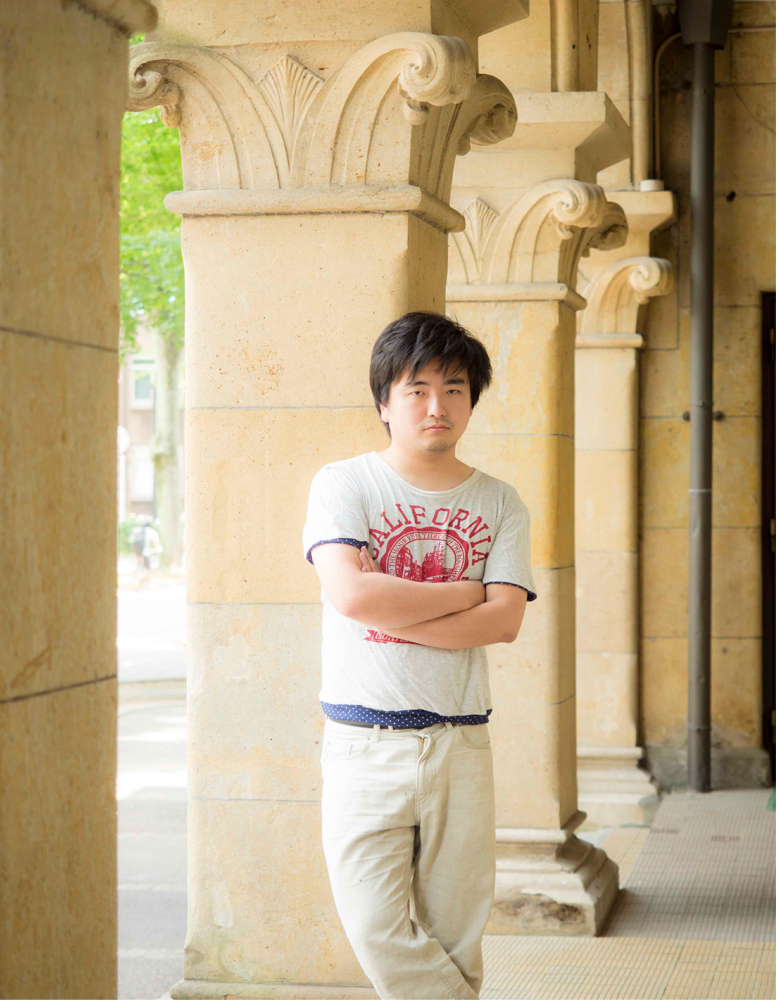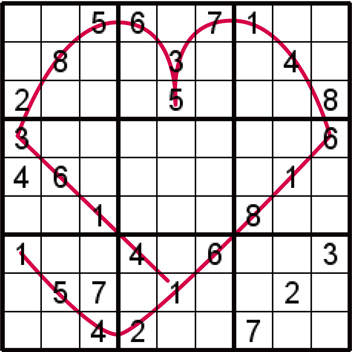Proof that “Fourth Time's the Charm” at the World Championships: A Sensation in the World of Sudoku
Kota Morinishi
Second-year Doctoral student, Graduate School of Engineering

“Sudoku puzzles are not difficult just because they may have a lot of empty blocks,” Kota explains.
Sudoku, or “Number Place” as it is known in Japan, is a crossword-like puzzle in which one enters the numbers one through nine in 81 squares arranged in nine 3×3 blocks. The only rule is that more than one of the same number cannot be placed in each block or each line of nine numbers. Kota is one of the world's top players of this puzzle game.
“I believe my first brush with Sudoku was when I happened to see a Sudoku puzzle in a magazine at a bookstore during my first year of junior high school. I normally didn't buy puzzle magazines, but for some reason I decided that I'd make an exception that time.”
When Kota tried doing the logic-based puzzles, he realized that they fit right in with his way of thinking. He says that he couldn't stop doing a puzzle once he started, to the point that “the long hand of the clock had gone around several times before I [he] realized it.” With university entrance exams on the horizon, Kota temporarily brought his Sudoku activities to a halt. After entering UTokyo, however, he made a roaring comeback. Achieving favorable results at Japanese tournaments, he proceeded to the World Sudoku Championship in the United States for the first time, where he came in 25th place. Rather than being dismayed by this relatively low outcome, Kota says that his experience at the championships helped him grow as a person.

A Sudoku puzzle Kota created to commemorate his receiving of the University of Tokyo President's Award. It's shaped like the University's symbol, the ginkgo leaf.
“Seeing all of the best Sudoku player in the world in person was a major turning point for me. I thought it was amazing how they were giving their all to excel in what amounts to just a simple game. I don't really know how to explain it, but this experience led me to understand how to better apply myself to the game. I didn't have anything to base my thoughts on at the time, but seeing these people made me feel that there was still so much more that I could accomplish.”
Kota was just getting warmed up. With his first experience at the world championships under his belt, he placed second at the 2011 World Sudoku Championship held in Hungary the following year. He went on to win the silver medal again for the next two years, bringing his total win streak at the World Sudoku Championship to three years in a row. At the 2012 International Sudoku Tournament in Beijing, he took home the gold, achieving a masterful victory to come in first place. While you'd think that to get to this level he'd certainly have to be addicted to Sudoku, such is not the case. In fact, Kota spends only about an hour each day on Sudoku, and there are some days he doesn't even do it at all.
“I like participating in tournaments and playing Sudoku in a competitive atmosphere. Thinking about how to solve puzzles within a time limit, fraternizing with kindred spirits, winning prize money—all of these aspects of tournaments keep me stimulated and excited. Come to think of it, saying that the tournaments are my motivation would be an understatement. If there weren't any tournaments, I may not have continued playing Sudoku at all!”
In Sudoku, numbers enjoy being placed in squares all to themselves. Kota, meanwhile, enjoys competing with others rather than staying in his own “square” of thought. And the numbers certainly aligned for Kota at the 2014 World Sudoku Championship held in England in August, because he won.
Q&A Extras
What's difficult about Sudoku?
“That there are puzzles which require a lot of methods to solve.”
What do Sudoku and your major, seismic engineering, have in common?
“Nothing, really.”
What's an advantage of being at UTokyo?
“Chances to do things that you want to do will turn up all around you.”
Favorite alcoholic beverage?
“Beer, especially the Asahi brand.”
What does being “tough” mean to you?
“Overcoming bad things that happen to you. Living up to the ideals of what is expected of a UTokyo student.”

Kota before UTokyo
A personal picture from his high school graduation album.




